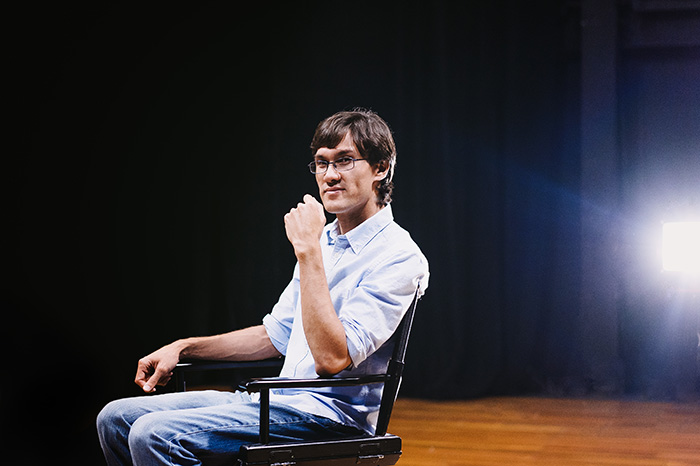
Kim-Long Hua-Rupp knew he was ready for a career change.
A screenwriter by training, Hua-Rupp was paying his bills by teaching MCAT test preparation courses in organic chemistry while working on screenplays in his spare time.
“It was a good job, but I felt like I was stagnating,” he said of his test prep gig. “With screenwriting, if you are stagnating in one place, it shows up in other places.”
So Hua-Rupp made a bold choice: he decided he wanted to challenge himself by going to medical school.
At first, he thought he could teach himself the material needed for the MCAT, but he soon realized the folly of that approach.
“I had no background in biology,” said Hua-Rupp, who graduated from UC San Diego with a degree in film.
Even if he had been able to master biology on his own, Hua-Rupp realized he needed an edge when it came to the competitive nature of the medical school application process. In 2013, for instance, nearly 58 percent of medical school applicants were denied admission to any medical school.
So Hua-Rupp began investigating postbaccalaureate premedical programs, which are designed to help prospective medical students enhance their academic records as well as prepare them for the rigors of medical school. Because of the steep medical school admission odds, there has been an almost 50 percent increase in the existence of these postbaccalaureate, or “postbac,” programs since 2009, with approximately 140 schools now offering them.
Hua-Rupp ultimately decided on UC San Diego’s Post Baccalaureate Premedical Program, which is run by Extension, because the one-year program offered a shorter time commitment compared to other programs and it offered a more collaborative atmosphere.
“We all take classes together and we are this big mob of postbaccalaureate students,” he said. “We support each other and help each other out. The support system you get is just great.”
In fact, the vibe at the UC San Diego postbac program, which accepts just 30 students per year, reminded him of the American Film Institute (AFI), where he received his master’s degree in screenwriting.
“There can be a really competitive nature to medical school, but I feel like with medicine, you have to be collaborative,” he added. “That’s why I liked AFI, because it was a really collaborative place.”
In fact, the support system is just one of the many similarities Hua-Rupp sees between the seemingly disparate worlds of medicine and screenwriting. First and foremost, he said, both demand a high level of dedication and hard work.
“The number one connection that comes from writing is you need discipline,” he explained. “In screenwriting, a lot of people have talent. What differentiates you is discipline.”
Hua-Rupp also said medicine and screenwriting require you to be in tune with and understand people’s needs and backgrounds.
“You are mining human beings for emotional truths,” he said. “You have to have empathy and compassion for your characters and your patients.”
But Hua-Rupp said UC San Diego Extension’s Post Baccalaureate Premedical Program has taught him about more than teamwork and compassion. It truly prepared him for the academic challenges that medical school will ultimately present.
He had access to all of the resources at UC San Diego School of Medicine, which is one of the top medical schools in the country. He also said the classes in such subjects as biomedical science, physiology, and biochemistry matched the rigor of what is offered at medical schools.

“The curriculum is similar to what you get in med school,” Hua-Rupp said. “It is really intense, but that’s when you can figure out you can do it. I feel like I can go to medical school with confidence that I can succeed.”
The UC San Diego postbac program, which is entering its fourth year, already has helped others in their quests to become doctors. From the first cohort of postbac students, nearly 80 percent of those who applied were accepted to such medical schools as UC San Diego, Michigan State, UCLA, UC Riverside, Stony Brook in New York, and the Medical College of Georgia.
To assist with the application process, postbac students also receive MCAT tutoring, advising on how to apply to medical school, and interview coaching. Hua-Rupp, who will graduate from the program this June, is ready to begin work on the all-important personal statement. He’s hoping his writing background will be a help, and he envisions crafting the personal statement as if it were a script.
“I’ll just do draft after draft after draft,” he said. “That’s how you do it with screenwriting—with hundreds of drafts.”